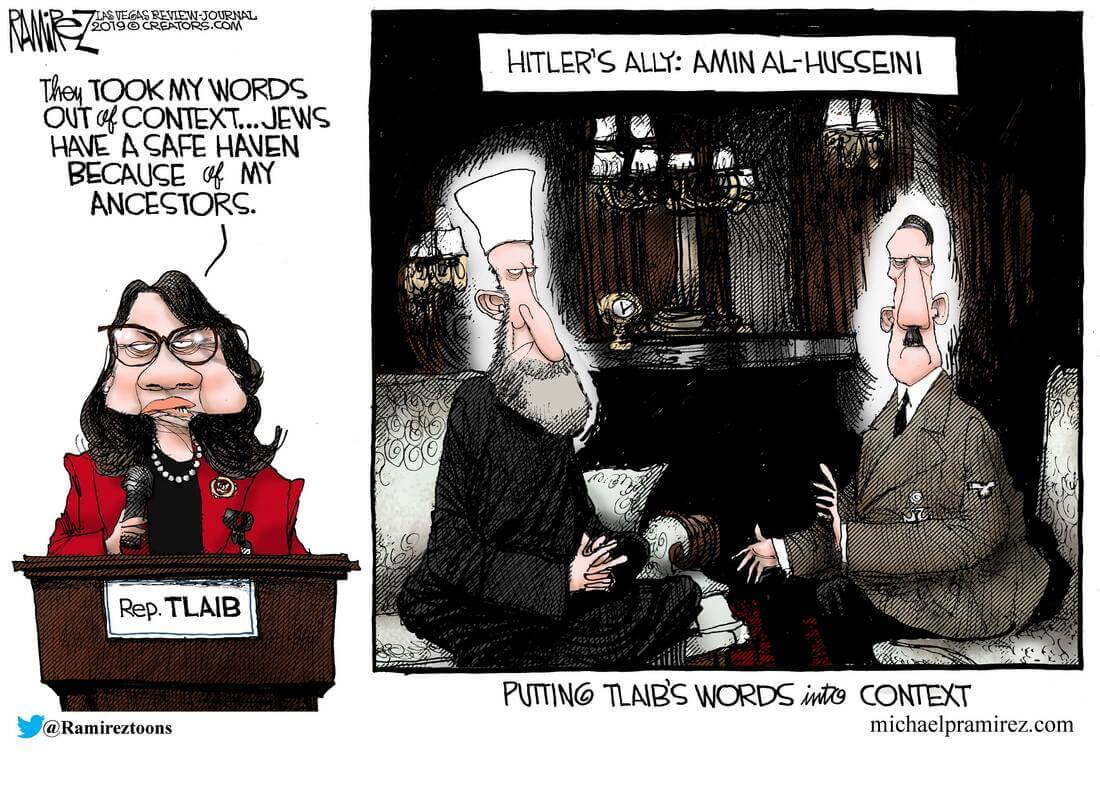WaPo: Israel's Unique Support for Preserving Minorities' Identities
Last week, I spent some time in Israel talking to people about religion, ethnicity and identity. Viewing faith as integrally tied to your place and your ancestors and your history is probably more common worldwide than the modern American and Western European view of faith as a personal choice. That radical difference in worldviews explains much of what makes many Americans most uncomfortable about Israel: calling itself the Jewish state, maintaining separate educational systems for Arabs and Jews, excusing most Arabs from mandatory military service.Douglas Murray: Israel has healthier attitude toward nationalism than Europe
Israel gives its religious minorities ample freedom to practice their faith, as Israel defines itself by Judaism. But Israel's religious minorities don't necessarily resent that in the way Americans might expect. I spoke to Shadi Khalloul, a Maronite Christian activist in the Galilee who is working to revive Aramaic as the daily language of his community. He wants a separate school system for his community's children.
If a country protects the civil rights of minority citizens, as the Israelis generally do, it can offer the one thing that an aggressively secular liberal state can't: easy preservation of the minorities' own particularist identities, which tend to be lost in aggressively secular liberal nations as the minorities are more or less forcibly assimilated.
Israel is able to accommodate these communities more tolerantly not despite its particularist self-definition but because of it. Judaism isn't a universalizing creed - it doesn't seek converts - so the Jewish majority feels relatively little threat from other faiths.
The first Israeli Conservatism Conference sought to bring some of the biggest conservative intellectual names to its event in Jerusalem on Thursday. In that vein, British writer and commentator Douglas Murray spoke, along with well-known Israeli right-wing figures.
Murray has given several talks in Israel this week on immigration, the subject of his hit book The Strange Death of Europe, which came out in 2017 and was released in Hebrew late last year.
“Immigration is the major issue everywhere, and even the countries where it isn’t the number one issue, it ends up becoming one,” Murray told The Jerusalem Post this week.
Murray pointed to differences between Israel and Europe on the issue: “In Israel, you see strong borders as the best way to ensure peace, while in Europe, people see it as a cause of war. Israel has had little taste of what Europe had in recent years in much larger numbers.
“People in developed countries have been lucky, and are trying to work out what latitude should be given to people born in unlucky countries,” he said. “There is a consideration of that in Israel, but the scale is very different than in Europe.”
Behind the different views on immigration is a drastically divergent understanding of the concept of nationalism, Murray explained.
“In Europe, everything to do with identity, history, patriotism and nationalism is viewed in a suspicious light, for reasons I don’t need to elaborate on,” he said, referring to fascism and World War II, “while in Israel, nationalism is viewed as good, and patriotism is good. The religious inheritance in Europe is incredibly fraught, while Israel is not lacking in friction, but people have a healthier attitude and are more engaged.”
Melanie Phillips: The groups who hand antisemites their get-out-of-jail-free card
Yet faced with this chilling display, the media could barely bring itself to shrug. This is largely because progressive people refuse to acknowledge that their signature Palestinian cause — so revealingly exposed by the mind-bending distortions of Rashida Tlaib — is the new antisemitism.
And that’s because they refuse to acknowledge that Palestinianism itself is fundamentally anti-Jew.
This denial of a most inconvenient truth—that the Arabs’ hatred of Israel derives from their murderous hatred of the Jews—was illustrated by one aspect of a BBC documentary last week about the border riots in Gaza.
In it, a Gazan boy says “the revolutionary songs excite you, they encourage you … to rip a Jew’s head off.” But, instead of accurately translating the Arabic word Yahud that he and others used for Jew, the BBC mistranslated it as “Israeli.”
The BBC insists that this was “both accurate and true to the speakers’ intentions.” This is simply untrue. In Arabic, yahud means “Jew.” When Arabic media refer to Israel, they use that word in Arabic letters.
A chant frequently heard among Islamic religious extremists is Khaibar, Khaibar, ya Yahud, Jaish Mohammed, sa yahud, which means “Jews, remember Khaibar, the army of Mohammed is returning.”
Anyone who reads Islamic religious texts can see that hatred of the Jews is embedded in Islamic religion and culture. Yet in America and Britain, this is all but unsayable.
Anyone who points out that Islamic society is fueled by hysterical and obsessional antisemitism is deemed to be Islamophobic — not least by prominent British Jews.
Astoundingly, they equate Islamophobia — the term designed to silence criticism of the Islamic world — with antisemitism. So they remain silent about this major threat to themselves from the Muslim community, the group of which the left will permit no criticism, while inflating the threat from “the right,” the group the left blames for all the ills of the world—and in which it preposterously lumps together white supremacists, anyone who criticizes mass immigration and all those who voted for Brexit.
Denial of Palestinian and Muslim antisemitism is legitimizing, mainstreaming and fueling antisemitism in the West.
When confronted with their own bigotry, people like Tlaib and Suleiman claim that the real problem of antisemitism comes from “the right.”
And which groups in both America and Britain hand them this particular “get out of jail free” card so they can continue to escalate the climate of Jew-hatred? Why, the left, of course — and the Jews.








































